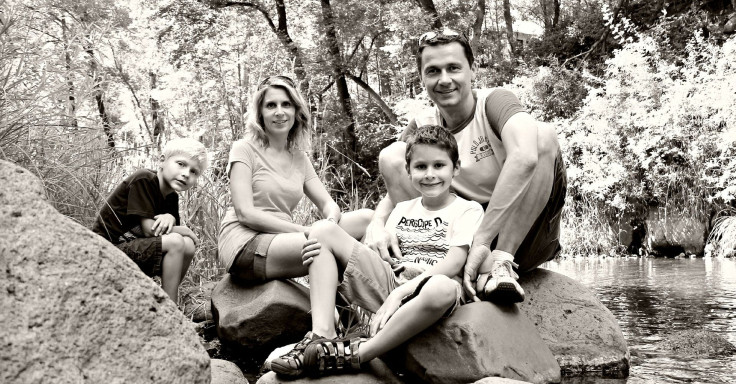Parents In The US Are Less Likely To Be Happy, Thanks To Lack Of Support And Flexible Work Hours

Having a child is a decision that can, and will, affect almost every aspect of a person’s life. On one hand, children can bring happiness, fulfillment, and a true sense of family to a couple. On the other, babies are expensive, time consuming, and can challenge the patience of even the most laid-back parents. In the United States, it turns out that the more trying aspects of parenting are getting the better of people, as new research shows parents are not as happy as those without children.
Scientists from Baylor University, the University of Texas at Austin, and Wake Forest University teamed up to examine data on parental happiness from the U.S. and 22 other industrialized countries. They gathered statistics from the International Social Surveys and the European Social Surveys, and saw that not only are U.S. parents generally not as happy as non-parents, but the country also has the largest happiness gap between the two groups. Set to be published in the September issue of the American Journal of Sociology, the report on the data looks at why such a gap might exist.
Co-researcher Dr. Matthew Anderson, an assistant professor of sociology at Baylor, says the answer may lie in the workplace. In the U.S., there is a relative lack of workplace policies aimed at helping parents balance their new responsibilities with their careers. Only 12 percent of private sector workers have access to paid family leave through their employer, according to the U.S. Department of Labor. Even then, the exact amount of leave is left up to employers, and varies widely.
“The United States, without any standard paid leave available to mothers or parents — or any standard vacation or sick leave to support raising a dependent child — falls strikingly behind all the other countries we examined in terms of providing for parents’ happiness and overall wellbeing,” he explained in a press release.
In many other industrialized countries, there are government or industry mandates for these kinds of policies. In Sweden, one of the countries with the most generous policies, parents are entitled to 480 days of paid parental leave, 90 of which are exclusively reserved for the father. Most European countries, in fact, promise not only maternity leave, but paternity leave as well — Finland, Denmark, and France are among them. In places like this, the happiness gap between parents and non-parents, when still present, is much smaller. “In fact, in those places, parents might be slightly happier,” Anderson noted.
Some argue that workplace packages for family support come at the expense of those without children, but even if this is the case, the entire population of countries in which these policies exist enjoy happiness boosts. This is also true for subsidized child care, another institution that some assume would only benefit parents.
“Another striking finding was that giving money to parents in child allowances or monthly payments had less effect on parental happiness than giving them the tools — such as flexible work time — to combine employment with parenting,” the report reads.
Interestingly, the study also noted that Americans in general are happy people. On a scale of 1 to 10, U.S. citizens hovered in the 8 to 10 range. French people, by comparison, tended to rate themselves around 5 to 7. The researchers also tested other hypotheses in relation to parenting and happiness, including whether unexpected births or larger families had an impact on happiness, but the study found these distinctions were generally unimportant.
Source: Anderson, et al. United States Parents not as Happy as Those Without Children, Researcher Says. American Journal of Sociology. 2016.



























